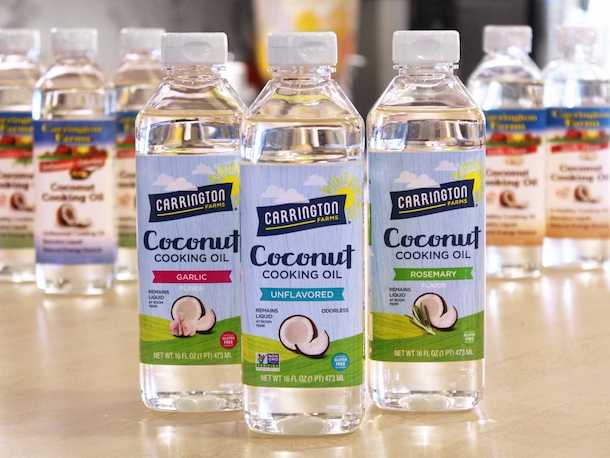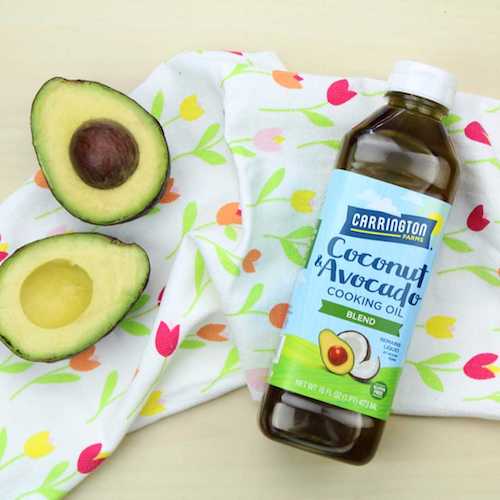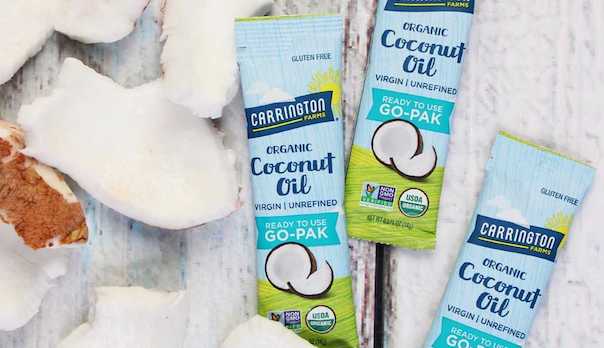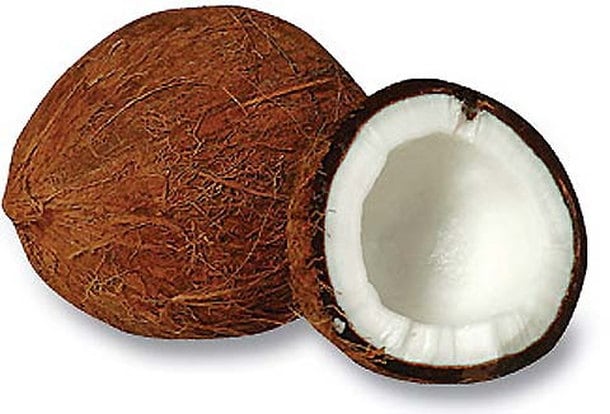Speaking to FoodNavigator-USA after launching the new vegan protein powder - which combines organic coconut powder, organic pumpkin powder, and organic pea powder - chief growth officer Debbie Shandel said the bulk of the protein in the product came from coconut.
While USDA data suggests that raw coconut meat contains just 3.3g of protein per 100g (although the percentage of protein in dry coconut would presumably be higher as raw coconut meat contains a lot of water), the Carrington Farms vegan protein blend contains "20g of protein per serving and most of that comes from the coconut," claimed Shandel.
"We figured out a way of getting protein out of the coconut in sufficient quantities that it’s meaningful. So the protein punch comes from the coconut.
“We even thought about doing a straight coconut protein powder but we needed a couple of other ingredients to balance it out. But it’s still only got three ingredients, whereas with many of these protein powders you see on the market, the ingredients list is often 20-ingredients long.”
Double digit growth for coconut oils
As for coconut oils – which form the bulk of Carrington Farms’ portfolio – the market has exploded in recent years, said Shandel: “A couple of years ago it was maybe a couple of coconut oil SKUs and now you see coconut products occupying two feet of shelf space. The overall market is generating double digit growth and we’re now the second biggest brand in terms of dollars and doors behind Spectrum.”

Packaging refresh, new packaging formats
Carrington Farms – which has recently unveiled a packaging refresh – sells coconut oils in jars, tubs, single-serve sachets, bottles and sprays, and has also developed blends of coconut and avocado oil, plus a new coconut and ghee product, as consumers look beyond soy, canola and olive oil in the cooking oil set, said Shandel.
“We’re coming out with some new blends in Q3 and Q4 because our first two blends have been really popular. The avocado and coconut blend is incredible with salmon, for example.
“Retailers also really like our square tubs because they can stack them on shelf and consumers like the fact that they don’t see that ring of brown on the bottom of our jars that you see with some of our competitors.

“When coconut oil goes from liquid to solid and back to liquid depending on the temperature [coconut oil changes from liquid to solid at around 74-76 degrees Fahrenheit] the fibers can settle on the bottom and you often see this brown ring on the bottom of jars. You don’t see that with ours because we tear the coconut meat before we cold expeller press it so we take all those brown bits off and filter it at several stages of the process.
“We were first to market with liquid coconut oil in the cooking oil aisle and people love it because it’s easier to use and pour. The great thing about coconut oil is that is has a high smoke point than olive oil, so it’s better to cook with.”

Melting points
But isn’t coconut oil solid at room temperature?
Yes, said Shandel. “Coconut oil is made up of fatty acids which all have distinct melting points, so we use a proprietary distillation process that removes the fatty acids with higher melting points, so we can get to a product that’s liquid at room temperature, although if you put it in a refrigerator, it will still solidify as we still keep in some of the lauric acid.
“The medium chain tryglycerides – which have the lower melting points – stay in, so the cooking oil is higher in MCTs than the regular [solid] coconut oil.”
The main difference between the liquid coconut oil and the regular [solid] virgin, unrefined coconut oil is that the latter tastes and smells of coconuts, while the former does not, she said.
Is coconut oil healthy?

According to USDA charts, coconut oil is higher in saturated fat than butter, lard, palm oil, and beef tallow, which the dietary guidelines advise Americans to replace with liquid oils higher in mono and polyunsaturated fats.
So is coconut oil a ‘healthy’ fat? According to a recent advisory from the American Heart Association published in the journal Circulation, coconut oil raises LDL (‘bad’) cholesterol. And while it also raises HDL (‘good’) cholesterol, likely due to its high levels of lauric acid, say the authors, this doesn’t necessarily cancel out the effect on LDL, whereas some oils high in mono- and poly-unsaturated fats not only raise HDL but also lower LDL.
“Changes in HDL cholesterol caused by diet or drug treatments can no longer be directly linked to changes in cardiovascular disease (CVD), and therefore, the LDL cholesterol–raising effect should be considered on its own… Because coconut oil increases LDL cholesterol, a cause of CVD, and has no known offsetting favorable effects, we advise against the use of coconut oil.”
A 2016 meta-analysis of eight clinical trials and 13 observational studies looking into coconut oil and cardiovascular health concluded that, "The weight of the evidence from intervention studies to date suggests that replacing coconut oil with cis unsaturated fats would alter blood lipid profiles in a manner consistent with a reduction in risk factors for cardiovascular disease."
However, it also acknowledged that, "The effect of coconut consumption on the ratio of total cholesterol to high-density lipoprotein cholesterol was often not examined [in these studies]," and that, "Observational evidence suggests that consumption of coconut flesh or squeezed coconut in the context of traditional dietary patterns does not lead to adverse cardiovascular outcomes."
